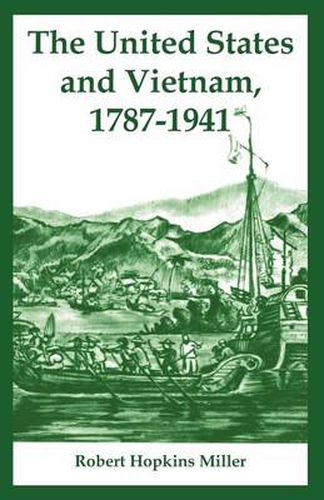Readings Newsletter
Become a Readings Member to make your shopping experience even easier.
Sign in or sign up for free!
You’re not far away from qualifying for FREE standard shipping within Australia
You’ve qualified for FREE standard shipping within Australia
The cart is loading…






This title is printed to order. This book may have been self-published. If so, we cannot guarantee the quality of the content. In the main most books will have gone through the editing process however some may not. We therefore suggest that you be aware of this before ordering this book. If in doubt check either the author or publisher’s details as we are unable to accept any returns unless they are faulty. Please contact us if you have any questions.
As efforts continue to settle the Cambodia-Laos issue, Vietnam is again a focus of American attention. With the passage of time since the United States pulled out of Vietnam, American policymakers have begun approaching the major Indochinese issues from new perspectives, particularly new perspectives toward that general region. As is so often the case, history, by informing, may also help illuminate these issues. In this book, Ambassador Robert Hopkins Miller, a diplomat with considerable experience in Southeast Asia, presents the early history of US-Vietnam relations. In 1787. President Thomas Jefferson first showed an interest in the region –then called Cochinchina– for the purpose of trading for rice. From this beginning, Miller traces the ebb and flow of US diplomatic, economic, and strategic interests in Vietnam. Amply illustrated with excerpts from contemporary correspondence and official documents, the research shows Vietnam’s intricate relationship with China, the gradually increasing commercial involvement of the Western powers, and the impact of Japan’s expansionist policy. The chapters building up to World War II are particularly informative as they demonstrate, among other matters, the responsibility of national leaders to identify unambiguous political aims. In documenting the early development of US-Vietnam relations, the author has provided a service for historians and contemporary analysts alike. In presenting the long view of historical perspective, Ambassador Miller has enhanced our understanding of this area of the world. J. A. Baldwin Vice Admiral, US Navy President, National Defense University
$9.00 standard shipping within Australia
FREE standard shipping within Australia for orders over $100.00
Express & International shipping calculated at checkout
This title is printed to order. This book may have been self-published. If so, we cannot guarantee the quality of the content. In the main most books will have gone through the editing process however some may not. We therefore suggest that you be aware of this before ordering this book. If in doubt check either the author or publisher’s details as we are unable to accept any returns unless they are faulty. Please contact us if you have any questions.
As efforts continue to settle the Cambodia-Laos issue, Vietnam is again a focus of American attention. With the passage of time since the United States pulled out of Vietnam, American policymakers have begun approaching the major Indochinese issues from new perspectives, particularly new perspectives toward that general region. As is so often the case, history, by informing, may also help illuminate these issues. In this book, Ambassador Robert Hopkins Miller, a diplomat with considerable experience in Southeast Asia, presents the early history of US-Vietnam relations. In 1787. President Thomas Jefferson first showed an interest in the region –then called Cochinchina– for the purpose of trading for rice. From this beginning, Miller traces the ebb and flow of US diplomatic, economic, and strategic interests in Vietnam. Amply illustrated with excerpts from contemporary correspondence and official documents, the research shows Vietnam’s intricate relationship with China, the gradually increasing commercial involvement of the Western powers, and the impact of Japan’s expansionist policy. The chapters building up to World War II are particularly informative as they demonstrate, among other matters, the responsibility of national leaders to identify unambiguous political aims. In documenting the early development of US-Vietnam relations, the author has provided a service for historians and contemporary analysts alike. In presenting the long view of historical perspective, Ambassador Miller has enhanced our understanding of this area of the world. J. A. Baldwin Vice Admiral, US Navy President, National Defense University